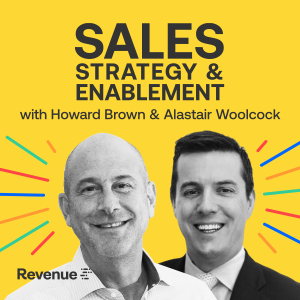From the podcast – Research says that sales coaching is the #1 sales management activity that drives improvement in sales performance. Except…there’s not a uniform definition for what sales coaching is. That’s a big problem. Is it mentoring? Skills development? Deal coaching? Plus, if sales coaching has the potential to drive performance improvement, why don’t companies invest more in training sales managers how to do it?
As a sales manager in the pharmaceutical industry since 2006, this podcast caught my attention very quickly as the participants hit five key points right up front:
- Sales Coaching is a HARD Skill
- Most organizations don’t train Sales Managers to be GOOD Sales Coaches
- As a results, most sales managers are POOR coaches
- Effective Sales Coaching can boost Rep performance by 19%
- Good Sales Coaching is required for Good Sales Training to be effective
In my experience through the years, which was reinforced in this podcast, a sales rep will create habits based on a combination of 4 “teachers”:
- Peers
- Customers
- Managers/Coaches
- Training Classes
Of those, the Training Classes have the shortest life span unless reinforced by a good Sales Coach.
The Top Sales Reps in a company or industry can AND DO take time to coach and develop themselves. This is a very small percentage of the total number of reps, because like most sales coaches, the majority of reps live day to day with very little focus or effort on improving their craft! I’m amazed every time I ask my team and others a simple question: “What do you do, outside of what our company provides you, to sharpen your skill set as a salesperson?” I typically get blank stares or a quickly made up or incoherent answer.
Sadly, the same answer would come from most Sales Managers as well. What are WE doing to improve our craft? Do we coach to deals and sales, or do we coach to improvement of selling skills?
The Covid Pandemic of 2020 has really exposed this challenge in my industry. For decades, we stroll into an office, following protocol, get face time with a physician, engage in a conversation, and move on about our day. We’ve been on “home assignment” since March 13 of this year, and we have had to learn an entire new sales approach – this software called “ZOOM.” Instead of walking in, we are scheduling appointments, trying to learn how to best use it, teaching our customers how to use it, and finally figuring out how to engage in a meaningful conversation with our customers across a computer screen. THIS TAKES EFFORT from the SALES REP AND from the SALES MANAGER!
Zoom Tuesday was an idea I had that defines what it means to be a “Sales Coach” in my book. Knowing that we needed to internalize and understand how to utilize this tool, I had each member of my team schedule a zoom meeting with me, as if I were a customer, then conduct a full “role play” meeting with our shared resources and all. While this took most of that Tuesday to pull off, we developed as a group a “process” that we still follow to this day.
As the podcast references, we should be selling with a “process” that people can follow and that we can hold them accountable to follow.
The other focus of the podcast discussion is where we as Sales Coaches spend our time. We should be spending at least 60% of our time with our reps coaching skill development. Unfortunately, most Sales Coaches in large organizations like mine spend more time on Admin, Report generation, and responding to e-mail than they do coaching to the skill development of their teams. The truth, as highlighted in this podcast, is that most organizations don’t spend enough time focusing on the development of coaching skills. For better or worse, time is spent on tracking, administration, discussions, and meetings. With that being said, I always have and will continue to look for ways to learn from others and improve my Coach/Leader skill set. That typically means books, podcasts, and during Covid home time – LinkedIn Learning.
To wrap this up, as a Sales Coach (and Leader), I get the most energy during the day when I spend time with my reps hearing them sell and coaching them to get better. If my team of reps are following the “process” and have confidence in their abilities and take the time to develop relationships while selling, we will continue to put numbers on the scoreboard. If you read much about the “process” as outlined by Football Coaches Nick Saban or Bill Belicheck, they don’t watch the scoreboard, they perfect their process. If their teams do the right things, the scoreboard will take care of itself.
I’ll finish with this – a challenging final quote from this podcast, which I highly recommend you to listen to:
“If Sales Reps aren’t selling, what are they doing?”
“If Sales Coaches aren’t coaching, what are they doing?”








